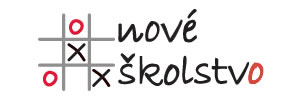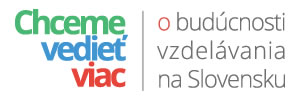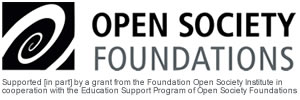Trends
The democratic governance and representation of various interests is the undisputed norm. The administration of public affairs is professionalized and automated, thus increasing transparency and reducing the possibility for corruption and favoritism. Policies and laws are shaped, to varying degrees, by individuals, informal networks, interest groups, and public and private institutions. Multiple functions and a large part of the performance of the public administration is transferred to self-governing, private, or international institutions. Bureaucracy is reduced thanks to computerization and the linking of various information and data systems.
Challenges
Are openness and transparency going to become the generally accepted norm? Will we manage to maintain a balance between private interests and the formulation of public policy? Will civil society become a practical tool for raising self-confidence of citizens and promoting the idea of the equality of all people?
| Imagine a FUTURE in which the underlying theme will be: | Imagine a FUTURE in which the underlying theme will be: | Imagine a FUTURE in which the underlying theme will be: |
| A GOOD CITIZEN STANDS ON THEIR OWN FEET AND PROSPERS | A GOOD CITIZEN IS A MEMBER OF THE COMMUNITY AND CONTRIBUTES TO ITS DEVELOPMENT | A GOOD CITIZEN IS USING THEIR POTENTIAL FOR THE BENEFIT OF THE WHOLE SOCIETY |
| The idea dominates that the state is something like a company. | The idea dominates that the state is something like an administrator of common property. | The idea dominates that the state is something like a father/mother, who will take care of everything. |
| Market mechanisms are efficient also in managing public affairs. The government guarantees its citizens equal conditions and access. | Self-governance is an efficient way of managing public affairs. The government guarantees its citizens the freedom to choose their communities. | Well thought-out regulation of social inequalities is required in the management of public affairs. In addition to security and human rights, the government also guarantees a quality standard of living. |
| Individuals are politically active as citizens based on their sole discretion. Participation in elections is voluntary. Matters of societal interest are the sum of individual interests. | Individuals are politically active citizens, particularly in their community, and they vote and participate in referendums and community assemblies. Matters of societal interest are those that communities cannot address themselves. | Individuals are politically active as citizens in everyday life. Participation in elections is compulsory. Active citizenship is in the interest of the entire society. |
| Civil society is characterized by pluralism, open competition, and the linking of interests of individuals, private companies, and those of non-profit associations. | Civil society is characterized by the high representation of regional associations and local initiatives, which are economically active and have diverse specializations. | Civil society is characterized by the diversity and high level of organization at the national level. Every industry has its professional, occupational, and employee representation. |
| The government only regulates essential legislation, guarantees human rights, ensures safety, and enforces compliance with the rules. The tax burden is low and the tax rate is the same for all. Efficiency of the public administration and the level of bureaucratic burden on citizens and companies are subject to systematic review. | The government is decentralized and regulates only basic conditions of community functioning. Government tax burden is low; communities themselves regulate the income sources and their revenue. The degree of economic self-sufficiency in communities is systematically reviewed. | The government and governance are centralized with rules of the societal operation being highly regulated and elaborated in great detail. The tax burden is high, generally accepted, and translated into a wide variety of free-of-charge public services. |
OUR RESEARCH
People in Slovakia believe that education relates to active citizenship to some extent. More than half of the people think that an educated person is also an active citizen. People also believe that, in 25 years, the state will play an equal (34%) or a lesser (40%) role in the life of an individual than at the moment. However, one third think that in 25 years, it will be important to have assurances that the state will take care of them when they need it.
OTHER RESEARCH
Almost three quarters of people in Slovakia (72%) think that democracy is the best possible form of governance. However, only 44% believe that democratic elections ensure that victory will go to who is best able to manage public affairs. At the same time, nearly a quarter of the population is convinced that a more hard-line government is more effective than democracy, and should be applied more frequently. As much as 38% of the population partially or fully agrees that if the government is unable to ensure order, people themselves should do it, even if violence is involved. 1
Personal liberty is considered more important in Slovakia than equality, although this trend is gradually declining. While in 1998 this was an opinion of almost 58 % of people, it was only 48% in 2008. However, the number of people who find freedom and equality to be equally important values increased. 2
„It is a disaster to see low self-esteem in children, 1 per cent are doing everything and the others are passive and dependent on others, with no self-confidence to be able to do something. Our education is failing in this. “ workshop participant in the town of Šamorín
Association among people and the development of community relations are also affected by the degree of trust among the people. While in the Czech Republic, general confidence among people grows, it keeps declining in Slovakia and its rate is lower than the average for Europe.3 Fewer people are becoming members of various clubs, associations, or even religious communities. The biggest decline can be seen in small villages. Since 1999, the rate of association of people dropped from 64% to 28%. 4
Institute for Sociology of the Slovak Academy of Sciences examined the attitudes of Slovaks towards politics and citizen engagement. On the 17 November 1989, people primarily rejected the state-run bureaucratic socialism of the previous era and their ideal then was that the Swedish or Austrian model of non-totalitarian state that offered a combination of a high standard of living and social security. Research has shown that this type of state is still sought today. People realize that a lot has improved in our country over 25 years, but they believe some things have gotten worse. People with higher education feel more positively about the situation.5
„Sometimes I feel demotivated to even say something so I am not surprised that children do not say anything either.“ a workshop participant in the city of Žilina
The interest in politics in Slovakia has been declining. While in 1991, up to 82% of the people discussed politics with friends frequently or occasionally, it was only 66% in 2008. Also, the number of people that exclude politics as an important part of their life is growing. This is connected to the decline in the willingness to engage. Active citizenship is demonstrated not only by the level of participation in society, but also the willingness to protest publicly in the streets. This form of engagement has been gradually declining in Slovakia. Only the willingness to sign petitions has sustained; it has never dipped below 60%. However, the real rate of participation in petition activities decreased from 57% in 1999 to 34% in 2008.6
GOOD TO KNOW
The satisfaction of people with the development of democracy has been tracked in Europe for a long time. While in Scandinavian countries, the prevailing attitude is satisfaction, which has also been continuously rising since 2002, the level of satisfaction is much lower and the trend is ambiguous in post-socialist countries. For example, in the Czech Republic, the rate of satisfaction remains stable over the long term and just below the average for European countries. In Slovakia, it is rising slightly, but it is still far below the European average.7
Through the European Citizens' Initiative, EU citizens may participate directly in the development of EU policies by inviting the European Commission to make a legislative proposal on a specific issue. Such citizens' initiatives must earn the support and collect signatures from at least one million EU citizens from at least seven member states. 8
Slovakia ranks second in the number of public administration officers. When calculated per capita for a population of 1,000 we have 37 officers. The number is only higher in Luxembourg with almost 48 officers per 1,000 inhabitants. We have overtaken such bureaucracy champions as Greece, Hungary, and France. 9
„ come across extreme views of students in social media, where they voice their opinions more courageously. Even if they feel that they are not subject to the school regulations when they are on Facebook, I nevertheless talk to them. They are still our students and can not only give our school a bad name, but more importantly, they can influence fellow students.“ Tomáš Slezák, history teacher
„Imagine that up to 11,000 Finnish parents wanted to be heard in a public debate on preschool education. Nowadays, when no one cares about what their neighbors are doing, they followed the proposals for changes in preschool education and had their opinion heard as to what educating small children should look like.“ Krista Kiuru, former minister of education in Finland
„Nobody asks us anything down here; it is good that you did ask.“ a workshop participant in the town of Šamorín
„They should allow us to talk to each other in class. I can't even ask my friend to lend me a pen as the teacher screams right away: “Be quiet!“ a pupil at a primary school in the village of Lozorno
Footnotes
[1] Gallová Kriglerová, E., Kadlečíková, J. (2012) Verejná mienka v oblasti pravicového extrémizmu. Bratislava: Nadácia otvorenej spoločnosti.
[2] Kusá, Z., Tížik, M. (eds.) (2009) Výskum európskych hodnôt 1991-1998-2008 slovenská a česká spoločnosť. Bratislava: Sociologický ústav SAV.
[3] Tamtiež.
[4] Tamtiež.
[5] Tížik, M., Zeman, M., Krapfl, J. (2014) Postoje slovenskej verejnosti k politike, angažovanosti a k 17. novembru 1989. Bratislava: Sociologický ústav SAV. Dostupné na
[6] Kusá, Z., Tížik, M. (2009).
[7] Výrost J. et.al. (2013) Európska sociálna sonda. 6. kolo na Slovensku. Košice: Universum.
[8] Európska občianska iniciatíva, Dostupné na http://ec.europa.eu
[9] Blehová, S. (2015) Slovensko ako kráľovstvo úradníkov. Sme lídrami v počte štátnych zamestnancov. In aktualne.atlas.sk, 10.1.2015. Dostupné na http://aktualne.atlas.sk. Meravý, T. (2015) Patríme k európskej špičke v byrokracii. In Blog Sme, 4.1.2015. Dostupné na http://tomasmeravy.blog.sme.sk



